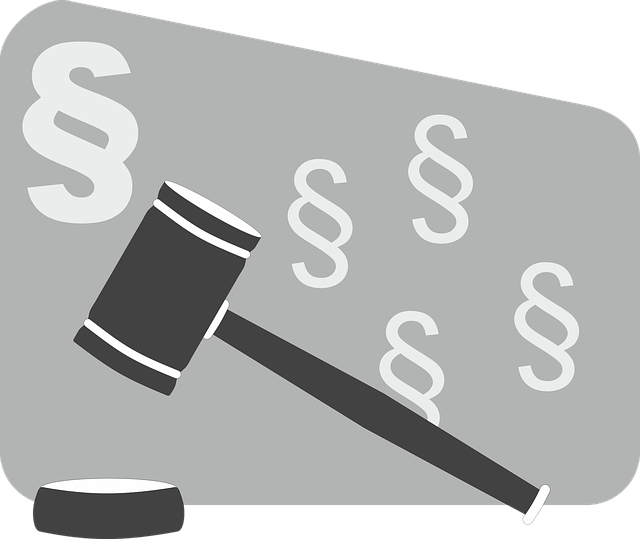Regulatory agencies significantly impact healthcare through law enforcement and ethical guidelines, affecting provider practices. To challenge agency decisions effectively, healthcare professionals must critically analyze evidence and legal frameworks, identifying errors or misinterpretations. This process involves strategic approaches tailored to each case, especially for complex regulations related to white-collar and economic crimes. By submitting formal challenges with detailed explanations and supporting documentation, organizations can request hearings or reviews before administrative bodies, aiming for the dismissal of charges or favorable compromises. Engaging experienced legal counsel specializing in healthcare law is crucial for successful outcomes, ensuring robust cases built on meticulous record-keeping and comprehensive evidence gathering.
Navigating healthcare legal issues can be complex, especially when facing regulatory agency decisions. This article guides you through understanding and challenging these decisions, focusing on key aspects like the process of filing a challenge and effective strategies for success in healthcare legal disputes. By exploring the legal framework behind grounds for challenging decisions, you’ll gain insights into how to navigate this intricate landscape. Learn step-by-step methods on How to Challenge Regulatory Agency Decisions and ensure fair outcomes.
- Understanding Healthcare Regulatory Agency Decisions
- Grounds for Challenging Decisions: Legal Framework
- The Process of Filing a Challenge
- Strategies for Success in Healthcare Legal Disputes
Understanding Healthcare Regulatory Agency Decisions

Regulatory agencies play a crucial role in shaping the healthcare landscape by enforcing laws and establishing guidelines to ensure patient safety and ethical practices. When these agencies issue decisions that impact healthcare providers, understanding their rationale is essential. Healthcare professionals should meticulously review the decision, examining the evidence presented and the legal framework upon which it’s based. This process allows for identifying potential errors or misinterpretations, crucial steps in knowing how to challenge regulatory agency decisions.
Effective challenges often require a strategic approach tailored to each case. For instance, when dealing with allegations of white-collar and economic crimes, understanding the rights of both corporate and individual clients is paramount. Legal teams must navigate complex regulations while striving for justice and achieving extraordinary results. By thoroughly evaluating the decision’s merits, presenting compelling counterarguments, and leveraging relevant legal precedents, healthcare providers can advocate for their position and potentially modify or overturn regulatory determinations.
Grounds for Challenging Decisions: Legal Framework

When considering how to challenge regulatory agency decisions, understanding the legal framework is paramount. Individuals or organizations facing adverse rulings from healthcare regulatory bodies have grounds to appeal, provided they can cite specific legal violations or errors in interpretation. This involves a deep understanding of the applicable laws and regulations, as well as procedural rules governing administrative appeals.
The process typically entails submitting a formal request for review, detailing the reasons for dissatisfaction with the initial decision. These challenges often focus on issues like lack of substantial evidence, procedural unfairness, or misinterpretation of facts. An unprecedented track record of successful challenging defenses across the country underscores the importance of meticulous preparation and strategic advocacy in navigating these complex legal landscapes.
The Process of Filing a Challenge

When facing a regulatory agency decision that impacts your healthcare practice, understanding how to challenge it is crucial. The process typically begins with careful review of the evidence and relevant laws. If you believe the agency’s decision is incorrect, unfair, or violates your rights, the next step is to file a formal challenge. This involves submitting a written notice outlining your concerns and providing supporting documentation.
The specific procedures vary depending on the regulatory body and jurisdiction but generally include filing a request for a hearing or review. You may have the option to present your case before an administrative law judge or a panel, akin to a jury trial, where you can argue against the initial decision. This process allows for a thorough examination of the evidence and legal arguments. Aiming for a complete dismissal of all charges is a key goal, but be prepared for potential compromises that may lead to a revised decision more favorable to your respective business interests.
Strategies for Success in Healthcare Legal Disputes

Navigating healthcare legal disputes requires a strategic approach to achieve successful outcomes. One key strategy is understanding and knowing how to challenge regulatory agency decisions effectively. Healthcare organizations often face scrutiny from various regulatory bodies, and challenging these decisions can be a complex process. Engaging experienced legal counsel who specialize in healthcare law is imperative. They can guide the respective business through the intricacies of administrative law and ensure all necessary documentation and arguments are presented compellingly.
Additionally, building a robust case involves meticulous record-keeping and gathering comprehensive evidence. This includes documenting internal processes, patient records, and any communication related to the dispute. A winning challenging defense verdict often hinges on presenting a well-organized and factually sound argument. By employing these strategies and staying proactive, healthcare providers can enhance their chances of navigating legal disputes successfully and avoiding potential indictments.
Healthcare legal issues, particularly challenging regulatory agency decisions, require a deep understanding of both the law and the industry. By familiarizing yourself with the process, from recognizing grounds for challenge to implementing effective strategies, you can navigate these disputes successfully. Armed with knowledge and the right approach, you can protect patient rights, ensure fair practices, and even revolutionize healthcare governance. Remember, knowing how to challenge regulatory decisions is a crucial step in fostering transparency and accountability within the industry.






